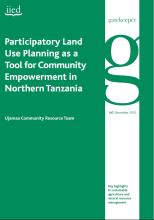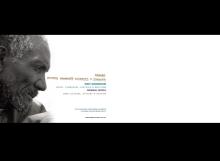/ library resources
Showing items 1 through 9 of 11.This Gender Evaluation Criteria (GEC) matrix has been extracted from the GLTN publication entitled Designing and Evaluating Land Tools with a Gender Perspective: A Training Package for Land Professionals
Language: English, Spanish, French, Arabic
This report provides an overview of the achievements and learning from the Phase 1 of the Tenure Security Learning Initiative - East & Southern Africa (TSLI-ESA) Project. It also looks ahead to strategies for scaling up the initiatives, and to the second phase of the TSLI-ESA project.
Tribal land management constitutes the largest of the three main tenure types that prevail in Botswana (tribal, State, and freehold). The land inventory is a means to support land administration, land development, land use planning, land transactions and natural resources management in Botswana.
This publication is the summary of the proceedings of the Regional Learning Workshop on 'Land and Natural Resources Tenure Security' held in Nairobi, Kenya from 29-31 May 2012 as jointly organized by UN-Habitat/Global Land Tool Network and International Fund for Agricultural Development (IFAD).
This chapter addresses issues related to securing access and rights to resources, and gaining benefits from the resource within the context of one community-based initiative in the village of Ololosokwan in Tanzania.
This paper presents several case studies to show how the Ujamaa Community Resource Team (UCRT) has been working within Tanzania’s legal and policy framework to support a diverse range of pastoralists, agro-pastoralists and hunter-gatherers, all of whom face fundamental threats from external appro
The Hadzabe community of the Yaida Valley requested UCRT to assist them to undertake a cultural mapping exercise.
In northern Tanzania, new grassroots groups called Women’s Rights and Leadership Forums (WRLFs) are mobilizing women and men in pastoralist communities to promote and defend local land rights.
Wildlife Management Areas (WMAs) have the potential to benefit both people and wildlife in Tanzania. But are Tanzanian communities earning enough from WMAs to want to protect the wildlife that live on their land?
Pagination
Land Library Search
Through our robust search engine, you can search for any item of the over 73,000 highly curated resources in the Land Library.
If you would like to find an overview of what is possible, feel free to peruse the Search Guide.









